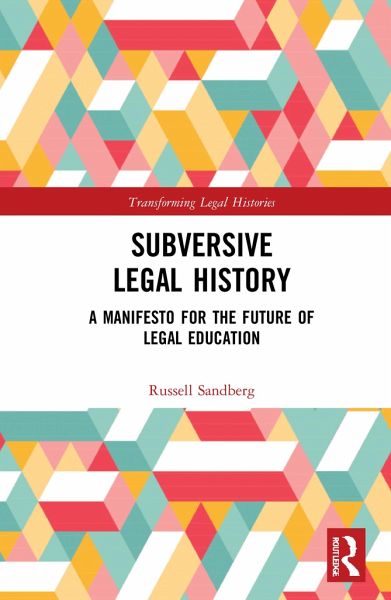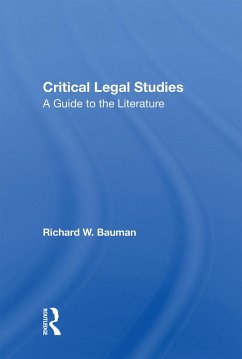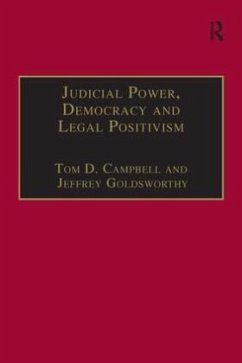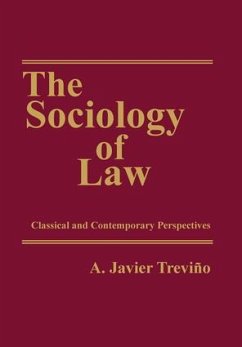
Subversive Legal History
A Manifesto for the Future of Legal Education

PAYBACK Punkte
22 °P sammeln!
Provocative, audacious and challenging, this book rejuvenates not only the historical study of law but also the role of Law Schools by asking which stories we tell and which stories we forget.It argues that a historical approach to law should be at the beating heart of the Law School curriculum. Far from being archaic, elitist and dull, historical perspectives on law are and should be subversive. Comparison with the past underscores: how the law and legal institutions are not fixed but are constructed; that every line drawn in the law and everything the law holds as sacred is actually arbitrar...
Provocative, audacious and challenging, this book rejuvenates not only the historical study of law but also the role of Law Schools by asking which stories we tell and which stories we forget.
It argues that a historical approach to law should be at the beating heart of the Law School curriculum. Far from being archaic, elitist and dull, historical perspectives on law are and should be subversive. Comparison with the past underscores: how the law and legal institutions are not fixed but are constructed; that every line drawn in the law and everything the law holds as sacred is actually arbitrary; and how the environment into which law students are socialised is a historical construct. A subversive approach is needed to highlight, question, de-construct and re-construct the authored nature of the law, revealing that legal change on a larger scale is possible. Far from being archaic, this recasts legal history as being anarchic.
Subversive Legal History is not a type of Legal History but is its defining characteristic if it is to be a central part of Law School life. It describes a legal method that should not be the preserve only of specialist legal historians but rather should be part of the toolkit of all law students, teachers and researchers.
This book will be essential reading for all who work and study in Law Schools, proposing a radical new approach not only to the historical study of law but also to the content, purpose and ambition of legal education. A subversive approach can revolutionise Law Schools providing a more ambitious legal education which is grounded in the socio-legal reality, helping to ensure that today's law students are better equipped to be the professionals and citizens of tomorrow.
It argues that a historical approach to law should be at the beating heart of the Law School curriculum. Far from being archaic, elitist and dull, historical perspectives on law are and should be subversive. Comparison with the past underscores: how the law and legal institutions are not fixed but are constructed; that every line drawn in the law and everything the law holds as sacred is actually arbitrary; and how the environment into which law students are socialised is a historical construct. A subversive approach is needed to highlight, question, de-construct and re-construct the authored nature of the law, revealing that legal change on a larger scale is possible. Far from being archaic, this recasts legal history as being anarchic.
Subversive Legal History is not a type of Legal History but is its defining characteristic if it is to be a central part of Law School life. It describes a legal method that should not be the preserve only of specialist legal historians but rather should be part of the toolkit of all law students, teachers and researchers.
This book will be essential reading for all who work and study in Law Schools, proposing a radical new approach not only to the historical study of law but also to the content, purpose and ambition of legal education. A subversive approach can revolutionise Law Schools providing a more ambitious legal education which is grounded in the socio-legal reality, helping to ensure that today's law students are better equipped to be the professionals and citizens of tomorrow.














